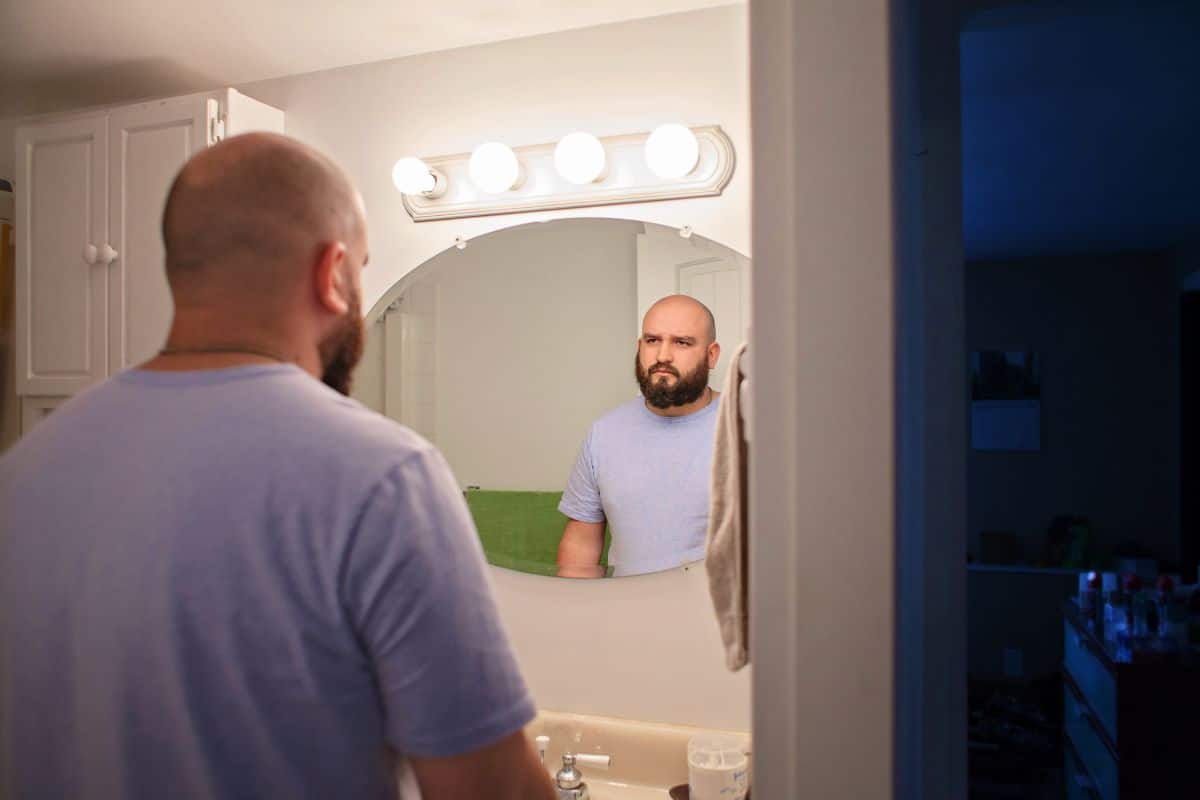It’s not uncommon to feel down on yourself from time to time. We all have moments where we doubt our abilities or question our worth. But if you find that you’re constantly struggling with negative thoughts and low self-esteem, it may be time to seek help.
Low self-esteem can take a toll on every aspect of your life. It can cause you to doubt your talents and abilities, which can lead to missed opportunities and feelings of inadequacy. It can also make it hard to form and maintain healthy relationships, as you may believe that you’re not worthy of love or respect. Additionally, low self-esteem can lead to destructive behaviors like substance abuse, eating disorders, and self-harm.
Today, we’d like to take a look at low self esteem, what it is, and how it might contribute to other negative factors in life, such as addiction.
The Definition Of Low Self Esteem
When it comes to low self esteem, there is no one definitive answer or definition. Different people may have different interpretations of what low self esteem means, and there is no single right or wrong answer. It’s important to note, low self esteem is not recognized in the DSM-5 as a mental disorder, but it can contribute to or be a factor in other disorders.
However, in general, low self esteem can be defined as having a negative or poor opinion of oneself. This may manifest in a variety of ways, such as feeling unworthy or undeserving, feeling inadequate or inferior, or feeling that one is not good enough.
Low self esteem can often lead to negative thinking patterns and behaviors, such as social withdrawal, avoidance of new challenges or opportunities, and even depression. Even worse, it can contribute to mental disorders such as eating disorders or addiction.
If you think you might have low self esteem, it is important to seek professional help so that you can address the issue and start working on improving your sense of self-worth.
Symptoms Of Low Self Esteem

If you’re not sure whether you have low self-esteem, ask yourself the following questions:
- Do I put myself down?
- Do I compare myself unfavorably to others?
- Do I feel that I’m not good enough?
- Do I find it hard to believe that anyone could love me?
- Do I avoid taking risks or trying new things in case I fail or look stupid?
- Do I need other people’s approval to feel good about myself?
- Am I hypersensitive to criticism or rejection?
- Do I have a history of failed relationships?
- Do I turn to alcohol or drugs to numb my feelings?
If you can answer ‘yes’ to many of the questions above, then it’s likely that you have low self-esteem. Low self-esteem can be both a cause and a symptom of mental health problems such as anxiety and depression, so it’s important to seek help if you think you might have it.
The Causes And Effects Of Low Self Esteem
There are many different causes of low self-esteem. Some people develop low self-esteem during childhood, as a result of being treated poorly by parents or other caregivers. Others may develop low self-esteem in adulthood, as a result of negative life experiences, such as job loss or relationship difficulties. Still others may have always had low self-esteem, for no apparent reason.
Whatever the cause, low self-esteem can have a negative impact on every aspect of your life. It can make you feel unworthy and undeserving of good things. It can lead you to believe that you are not capable of achieving your goals. It can make you feel that you are not worthy of love and respect from others.
Low self-esteem can lead to a number of problems, both in your personal life and in your relationships. People with low self-esteem often have trouble asserting themselves and are more likely to give in to peer pressure. They may also avoid taking risks or trying new things for fear of failure.
In terms of relationships, people with low self-esteem may find themselves in abusive or codependent relationships. They may stay in unhealthy situations because they don’t believe, somewhere deep down, they deserve better. Low self-esteem can also make it difficult to form lasting and meaningful connections with others.
If you think you might have low self-esteem, it’s important to seek help from a therapist or counselor who can help you work through these issues. With treatment, you can learn to love and accept yourself just as you are.
The Treatment For Low Self Esteem
The treatment for low self esteem can be different for each person, as the root cause of the low self esteem may be different. However, talk therapy is often extremely effective in dealing with low self esteem.
Talk therapy that deals with the roots of self esteem issues is important. It can help you understand why your self image is the way it is, and to help you understand how to combat these thoughts.
Talk therapy is also effective in dealing with problems that can crop up due to low self esteem, such as anxiety, depression, bipolar disorder, and many others. Medicine can also be used to treat these effects, but it’s generally always most effective with talk therapy.
The bottom line: speak to a therapist if you think you have low self esteem— they can help.
Problems Due To Low Self Esteem Don’t Have To Last Forever
Low self-esteem can be a difficult issue to tackle, but knowing the signs and understanding how to address it can make all the difference. We hope this article has provided some insight into whether or not you have low self-esteem and what steps you should take if so.
Remember that everyone experiences moments of insecurity, but taking actionable steps towards building your confidence is key for improving your overall well-being. And if you need a little extra help, we’re here for you. Especially if you have co-occurring disorders like addiction or mental health issues, give us a call at (954) 302-4269 and we can help get you back on your feet— and stay there.

